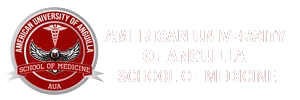

Blogs
4 Skills to Develop Before Caribbean Medical School
Medical school is a time of growth and professional development. It is also highly structured
and regimented.
Particularly in the clinical years and during residency, trainees are expected to follow
predefined and often rigorous schedules. There is a lot to learn and a great amount of stamina
needed for staying up long hours to take calls, running between hospital wards to coordinate
the care of patients, making rounds and assisting in procedures.
1. Waking up Early
In most fields of medicine, doctors and other members of the health care team get an early
start to their days. Med students and residents are expected to arrive at the hospital earlier
than more senior members of the team to make their patient rounds and prepare for the day's
activities.
Once, a very bright student struggled to transition into his medical training because he had a
hard time getting up early. As an undergraduate student, he studied late into the night to
prepare for exams. In his third year of med school, he had difficulty going to bed early and
learning how to study in the earlier hours of the day.
If you are in the early phases of your premed career and have not yet developed very fixed
sleeping habits, you may want to get accustomed to going to sleep earlier, waking up early and
using the earlier hours of the day to study. Alternatively, if you are a night person and find that
you are more productive in the evenings, consider gradually transitioning to a schedule where
you can go to sleep earlier and become accustomed to studying in the mornings.
2. Developing a Routine Exercise Regimen
Exercise has positive benefits for virtually everyone, but it is particularly important for doctors
in training. Research has shown that lack of exercise among medical students is associated with
higher rates of depression and burnout. Similarly, med students who engage in self-care,
including physical exercise, report a higher quality of life.
Premed students often say that they will start exercising more regularly when they get into
med school because they are too busy to do so now. If you are not able to build an exercise
routine into your daily regimen as a premed student, it will be much harder to do so in
Caribbean medical school when you have to balance personal activities with 16-hour workdays.
Medical students who come into med school with well-established exercise routines are more
easily able to maintain their exercise regimens, even in the busiest periods.
3. Improving Reading Skills
Like exercise, reading can serve as an outlet. Many physicians say reading helps them unwind
and relieve the everyday stress of their work. Others report that reading has made them better
communicators. Effective communication is essential in medicine.
Having good reading skills can help you in med school, where you have to sift through copious
amounts of material and learn concepts in a short time.
Getting into the habit of reading diverse topics will make you more informed and better
capable of relating to the many different patients you will encounter in your work as a doctor.
Some research even suggests that reading fiction has the potential to increase empathy, a
quality that all physicians must possess.
4. Learning to Handle Criticism
Criticism is very common in medical training. Almost all trainees regularly receive critical
feedback on their performance with the goal of improving patient care.
Sometimes the criticism can sound harsh. It is important for medical students to be prepared to
take such criticism in good stride and use it to make themselves better practitioners.
One way to prepare for handling criticism is by getting in the habit of soliciting feedback and
criticism from your superiors early on. As a premed student, don't be afraid to ask professors,
research mentors or others who supervise you to give you honest feedback on your
performance.
When you hear feedback, listen carefully and pay attention to the facts being presented. Do not
come up with excuses or justify your behavior. Consider how you can improve your
performance.
By doing this enough, you will develop more resilience and become better prepared to handle
feedback that comes your way, even if it sounds harsh.
